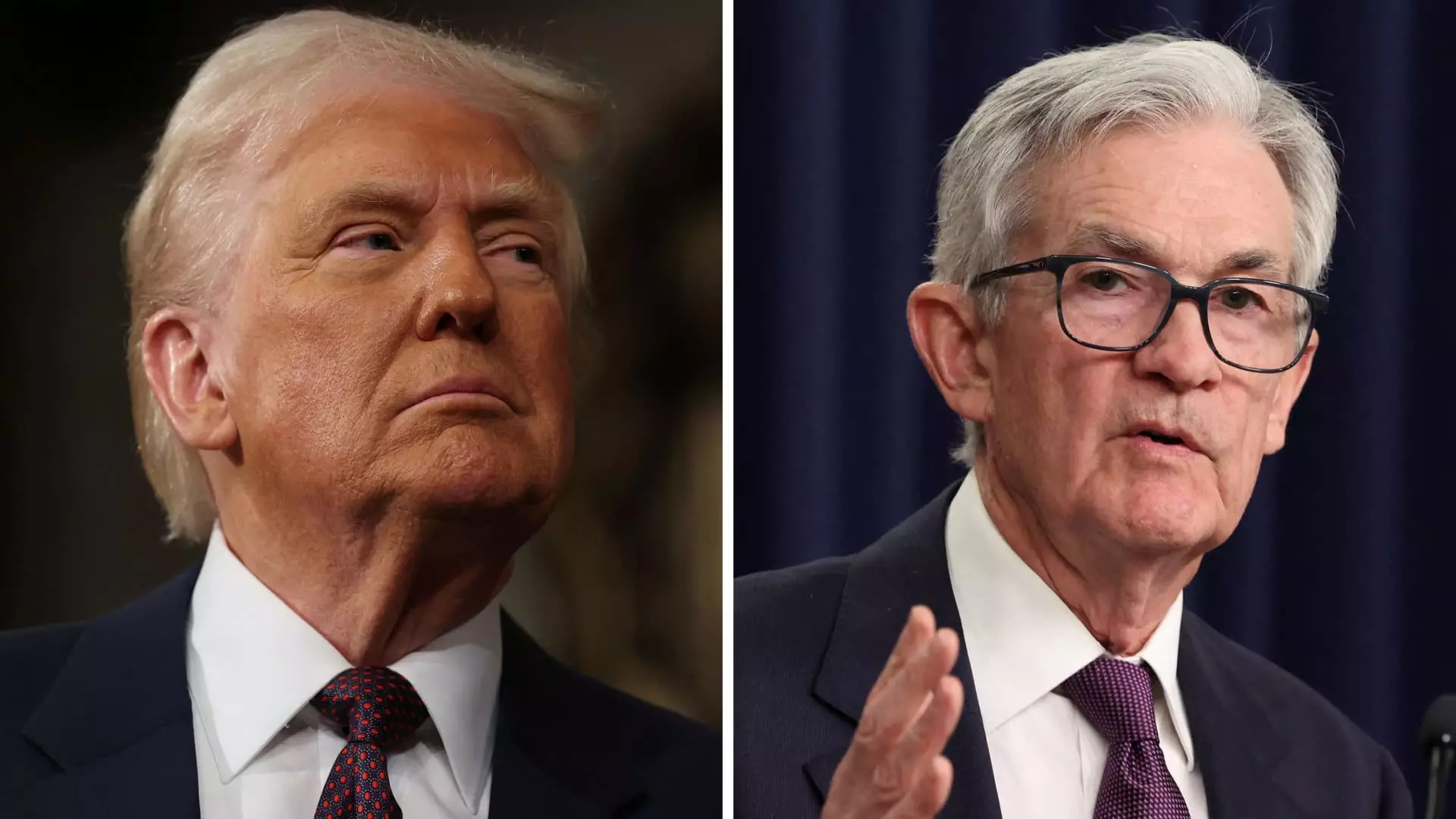Donald Trump’s recent comments urging the Federal Reserve to lower interest rates signals a concerning trend of political influence invading the realm of impartial monetary policy. By openly hinting at the termination of Fed Chair Jerome Powell, Trump is not only undermining the independence of the central bank but also sending a dangerous message to financial markets. His interventions could create an atmosphere of uncertainty where decisions are swayed more by political whims than economic fundamentals. This troubling blend of politics and economics may pave the way for instability in both national and global markets.
A Fragile Economic Landscape
The backdrop to Trump’s demands is a delicate economic environment where the Fed faces the daunting challenge of choosing between curbing inflation and fostering growth. The European Central Bank’s approach to lowering rates as a stimulus for their economy raises pivotal questions. If other central banks feel the need to react, what signal is Trump sending to his administration and the markets about America’s commitment to a stable and growth-oriented monetary policy? His rhetoric may sound enticing to some, suggesting an immediate fix for economic woes, yet it dismisses the complexities and longer-term implications of such actions.
The Risks of Populism in Economic Strategy
Populist sentiment often distorts the voice of reason in economic strategy. The notion that Trump could alter how the Federal Reserve operates reflects a troubling acceptance of rhetoric over rationality. He previously critiqued Powell for being “late to the party,” yet failings to recognize the intricacies of a central bank’s commitments and policies expose the shallowness of his financial understanding. Economic policies cannot merely pivot based on popularity or political pressure without dire consequences. These superficial solutions do little to resolve the underlying issues afflicting the economy.
The Folly of Tariff Policies
Echoed in Powell’s remarks is the significant impact that Trump’s tariff strategies have on monetary decision-making. While America grapples with the repercussions of these policies, it adds layers of complexity to the Fed’s mission. Calls for rate cuts in the face of such volatility might be an attractive short-term solution, but they chase the illusion that immediate gratification can overshadow the structural challenges bearing down on the economy.
The Dissenting Voice for Rational Economic Policy
The Fed’s independence is vital to maintaining a stable economic framework. If Trump embarks on a campaign to undermine Powell’s authority, he risks removing a critical counterbalance to political pressures, threatening to compromise long-term economic health for the sake of his agenda. Supporting rational monetary policy that remains insulated from political encroachment is essential for ensuring that economic decisions are made in the best interest of the country, rather than dictated by the whims of its leaders. By setting a precedent that political motives can dictate financial strategies, Trump’s actions could significantly detour America’s pathway towards sustainable growth.

